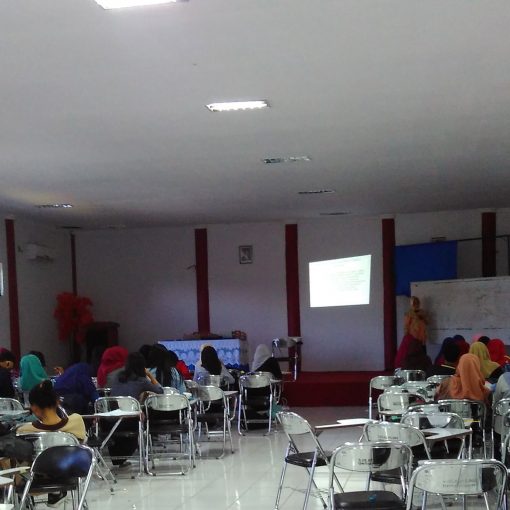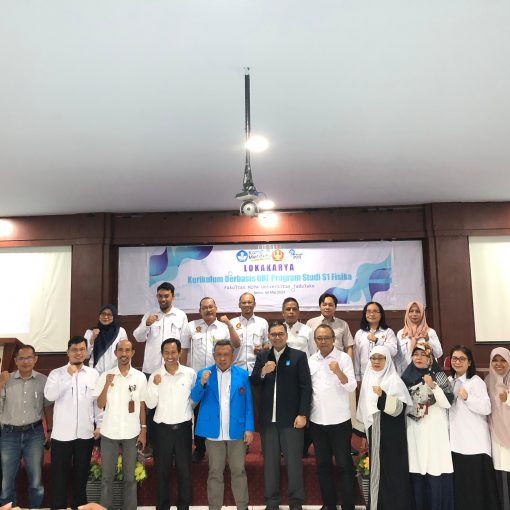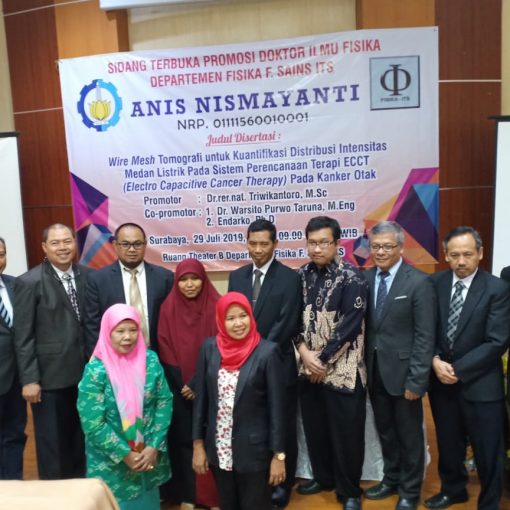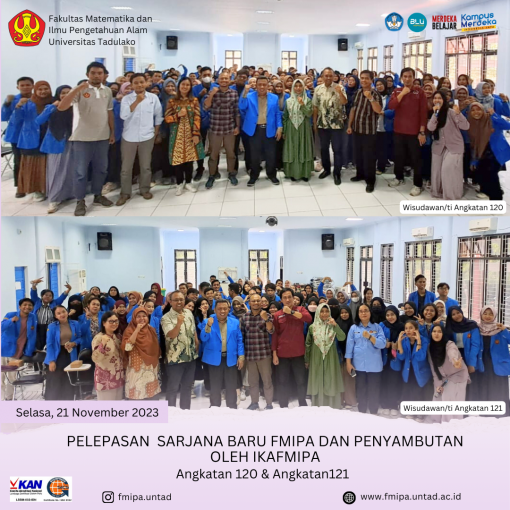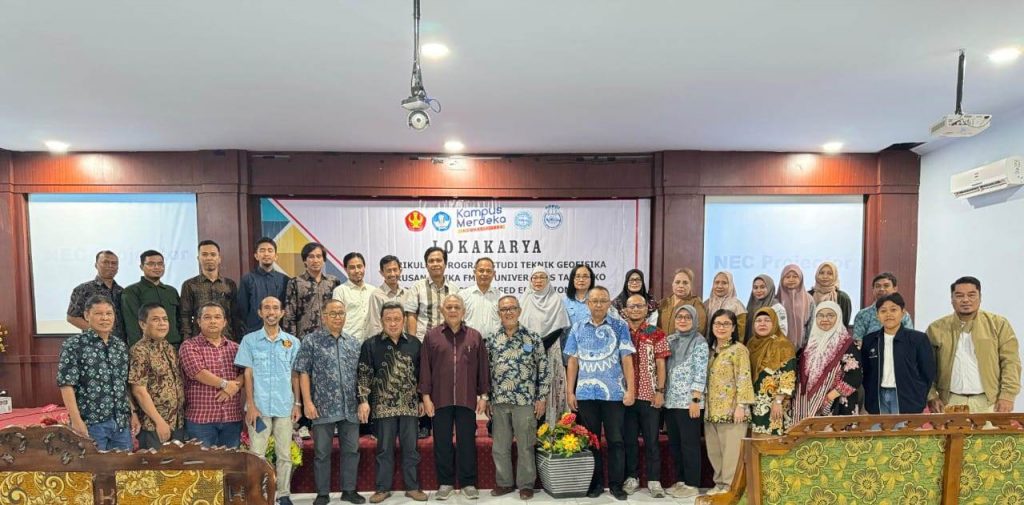
Pada hari Selasa, 4 Juni 2024, Program Studi Teknik Geofisika menyelenggarakan lokakarya revisi kurikulum berbasis Outcome-Based Education (OBE).
Dalam sambutannya, Kepala Program Studi Teknik Geofisika, Bapak Ir. Rusli, mengungkapkan harapannya terkait revisi kurikulum berbasis OBE ini. Beliau menyampaikan bahwa revisi kurikulum ini diharapkan mampu meningkatkan kualitas lulusan, sehingga mereka lebih siap menghadapi tantangan di dunia kerja dan mampu berkontribusi secara signifikan dalam bidang geofisika. “Kami berharap kurikulum baru ini dapat menghasilkan lulusan yang tidak hanya memiliki pengetahuan teknis yang mendalam, tetapi juga kompetensi yang relevan dengan kebutuhan industri,” ujar Ir. Rusli. Dekan Fakultas MIPA, Dr. Lufsyi Mahmudin, S.Si., M.Si., juga memberikan sambutan dalam acara tersebut. Beliau menekankan pentingnya revisi kurikulum berbasis OBE dalam meningkatkan kualitas pendidikan. “Dengan kurikulum berbasis OBE, kita dapat memastikan bahwa setiap lulusan memiliki kompetensi yang jelas dan terukur. Hal ini akan membantu mereka untuk lebih mudah beradaptasi dan berkontribusi dalam dunia kerja,” ungkap Dr. Lufsyi.
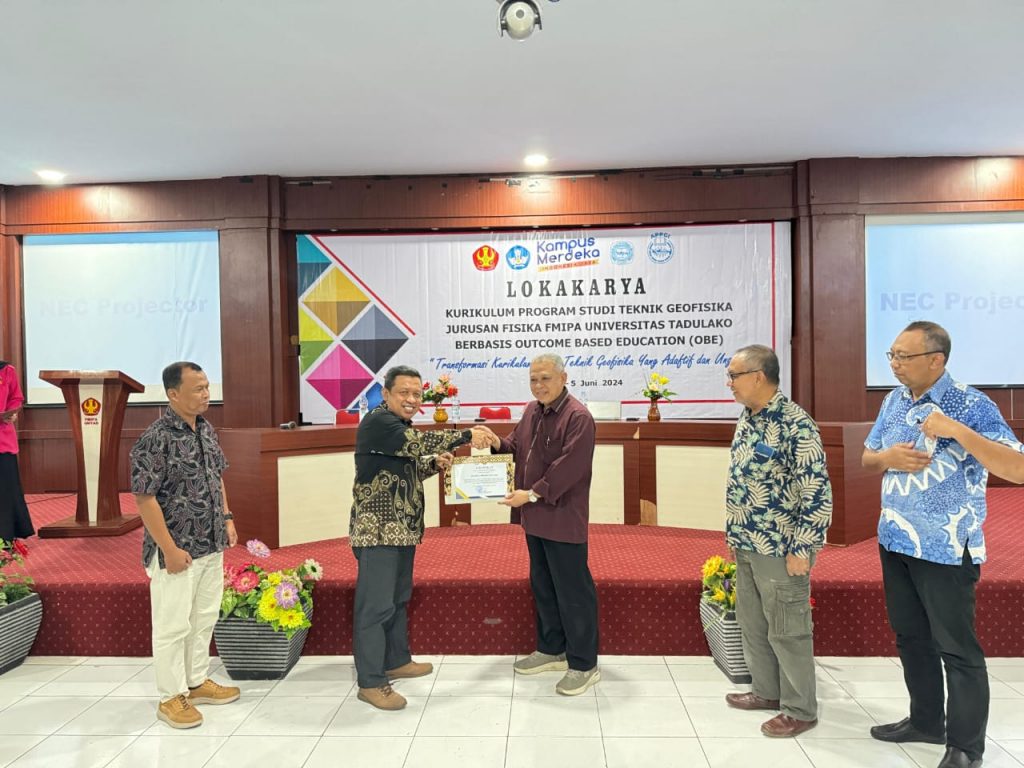
Lokakarya ini menghadirkan Drs. Ir. Adi Susilo, M.Si., Ph.D., pakar dari Program Studi Teknik Geofisika FMIPA Universitas Brawijaya, sebagai pemateri utama. Dalam paparannya, Dr. Adi Susilo menjelaskan berbagai aspek penting dalam kurikulum berbasis OBE, termasuk perumusan Capaian Pembelajaran Lulusan (CPL), Capaian Pembelajaran Mata Kuliah (CPMK), serta pengembangan muatan mata kuliah dan sebaran mata kuliah per semester.
Revisi kurikulum ini akan mencakup beberapa perubahan signifikan, antara lain:
- Capaian Pembelajaran Lulusan (CPL): Penyesuaian CPL agar lebih relevan dengan kebutuhan industri dan perkembangan ilmu pengetahuan.
- Capaian Pembelajaran Mata Kuliah (CPMK): Penyesuaian CPMK untuk setiap mata kuliah guna mendukung pencapaian CPL.
- Muatan Mata Kuliah: Pembaruan konten mata kuliah untuk mencerminkan perkembangan terbaru di bidang geofisika.
- Sebaran Mata Kuliah per Semester: Penataan ulang sebaran mata kuliah untuk memastikan distribusi beban belajar yang lebih merata dan efektif.
- Beban SKS: Evaluasi dan penyesuaian beban SKS agar sesuai dengan kebutuhan kompetensi lulusan.
Setelah lokakarya ini, langkah selanjutnya adalah implementasi kurikulum baru pada semester 2024/2025. Tim kurikulum akan bekerja keras untuk memastikan semua perubahan yang diusulkan dapat diterapkan dengan baik dan memberikan dampak positif bagi proses pembelajaran.
Lokakarya ini diakhiri dengan sesi diskusi dan tanya jawab, dimana para peserta aktif memberikan masukan dan saran untuk penyempurnaan kurikulum. Diharapkan, dengan adanya lokakarya ini, Program Studi Teknik Geofisika dapat terus meningkatkan kualitas pendidikannya dan menghasilkan lulusan yang siap bersaing di dunia global.

